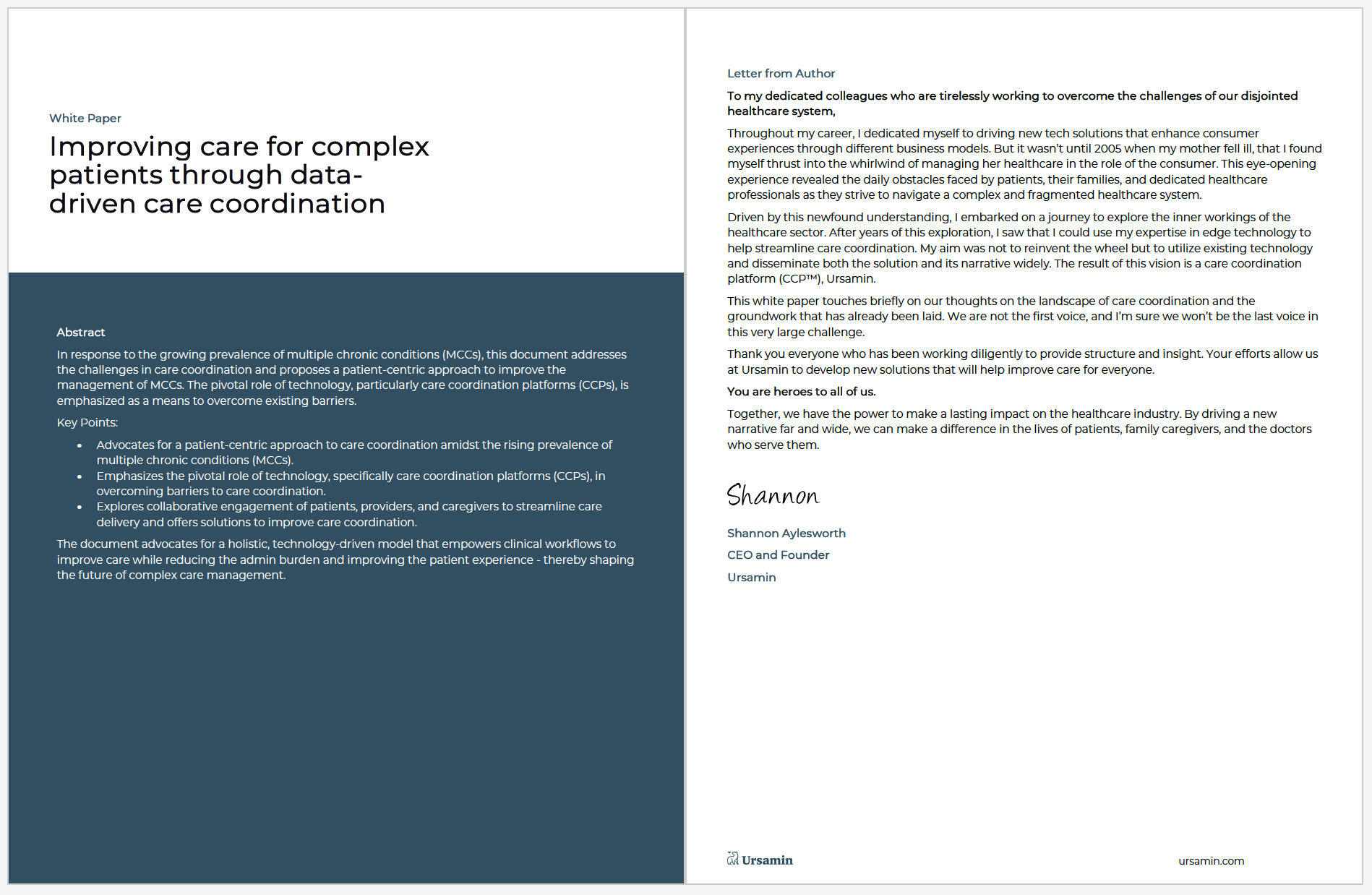In today’s digital era, the need for efficient data management and care coordination has never been more critical. The current approach, epitomized by electronic medical records (EMRs), must adapt to meet the futuristic challenges of caring for polychronic populations. This movement away from focusing solely on acute care brings into focus the necessity of a different data management paradigm. These limitations create overwhelming, unnecessary burdens on the provider, patient, and caregiver alike. The seamless exchange of information and collaboration among these stakeholders is crucial for providing high-quality, patient-centered care. However, the shift towards chronic illnesses and personalized care, has created a demand for rethinking the way we manage healthcare data. Traditional healthcare data management systems often fall short of meeting the demands of this type of modern care coordination. This is where rethinking healthcare data management comes into play.
Centralized Data Management and Storage – and What This Means
Distinct from the conventional perception of centralized EMRs comes a redefined need and meaning for data centralization. Rather than a one-size-fits-all approach, the emphasis is on providing a centralized location where authorized parties can access information. This preserves patient privacy and security while fostering patient empowerment. But it also bridges the gap between disparate EMR platforms and empowers individuals to have access to their health data and actively participate in their care decisions.
Unlike standalone EMRs, centralized data management and storage provides a unified platform that can integrate with multiple health record systems. This enables seamless sharing and access to patient data across different healthcare organizations and providers, regardless of what type of electronic medical or health system they use. This includes hospitals, clinics, laboratories, and pharmacies, into a single, comprehensive record. This holistic view of a patient’s medical history enables healthcare providers to make informed decisions, improve care coordination, and enhance patient outcomes.
The Importance of Healthcare Data Management and the Impact on Care Coordination
Effective healthcare data management is the backbone of care coordination. It involves the collection, storage, and analysis of patient data to ensure that the right information is available to the right people at the right time. This allows healthcare providers to make informed decisions and provide personalized care. However, healthcare organizations must manage vast amounts of data coming from diverse sources. And many healthcare organizations still rely on outdated and fragmented data management systems. These systems often lack interoperability, making it difficult to share information seamlessly across different healthcare settings.
As a result, care coordination suffers, leading to increased medical errors, duplication of tests and treatments, and delays in care delivery. This creates a detrimental impact on care coordination. Without access to accurate, inclusive, and up-to-date patient information, healthcare providers may struggle to make informed decisions in real-time. Furthermore, fragmented data management systems hinder effective communication and collaboration among healthcare providers, patients, and caregivers. For example, when a patient is transferred from one healthcare facility to another, important medical information may not be readily available, leading to gaps in care and potential medical errors.
Rethinking What Centralized Data Management Is: A Holistic Approach
To overcome the challenges and improve care coordination, healthcare organizations need to adopt an integrated approach to data management. This involves rethinking traditional systems and embracing innovative technologies. One key component of a holistic data management strategy is the implementation of interoperable systems. Interoperability enables seamless and secure sharing of patient information across different healthcare settings, ensuring that healthcare providers have access to comprehensive and up-to-date data.
Additionally, leveraging artificial intelligence (AI) and machine learning (ML) can significantly enhance data management and care coordination. AI algorithms can analyze large datasets to identify patterns and trends, helping healthcare providers make more accurate diagnoses and treatment decisions. ML algorithms can also assist in predicting patient outcomes and identifying high-risk individuals who require proactive interventions. Technologies are emerging today that offer a centralized, secure, and private location for data to be stored by a provider, their patients, and the extended care team.
Key Components Help Begin Rethinking About Centralized Health Data Management Strategies
An effective data management strategy should encompass several key components.
- Robust data governance frameworks: This includes defining data ownership, establishing data quality standards, and implementing data security measures to protect patient information.
- Implementing data standardization: This is crucial for ensuring interoperability. Standardized data formats and coding systems enable seamless data exchange, reducing the risk of errors and facilitating care coordination.
- Data analytics capabilities: This is essential for deriving actionable insights from healthcare data. By leveraging advanced analytics tools, healthcare organizations can uncover hidden patterns and trends that can inform clinical decision-making and care coordination efforts.
Centralizing Data Locations and Storage for Proactive, Personalized Care
A centralized data location for patients, providers, and extended care teams can enhance patient engagement by empowering individuals to access their own health information and participate in their care decisions. Furthermore, this enables healthcare organizations to leverage advanced analytics and artificial intelligence (AI) capabilities. By aggregating data from various sources, these systems can identify patterns, trends, and insights to inform clinical decision-making, population health management, and research initiatives. This data-driven approach empowers providers to provide more personalized medicine, early disease detection, and proactive interventions.
By adopting innovative technologies and leveraging data analytics, healthcare organizations can rethink their data management practices, enabling efficient and accurate information sharing across the care continuum. This not only enhances care coordination but also improves patient outcomes and reduces redundant or unnecessary treatments. As the healthcare landscape continues to evolve, healthcare organizations must embrace the opportunities presented by modern data management solutions to transform care coordination and collaboration – and better care for all.
Listen to how one physician is rethinking data management to overcome the challenges of emergency medicine in this podcast:





